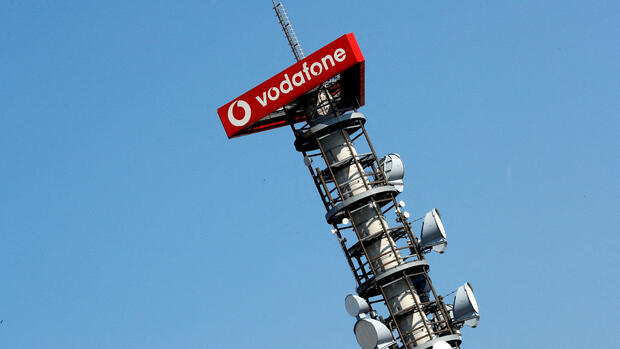1&1 accuses the group and its subsidiary Vantage Towers of deliberately slowing down the expansion of the competitor.
(Photo: Reuters)
Dusseldorf Why is the expansion of 1&1’s mobile network progressing so slowly? The telecommunications provider sees the competitor Vodafone with its radio tower subsidiary Vantage Towers as responsible – and has therefore filed a complaint with the Federal Cartel Office.
The authority will now examine the case more closely: on Friday it announced an examination as to whether Vodafone and Vantage Towers 1&1 “have prevented the possibility of joint use of radio tower masts and thus possibly violated German and European antitrust regulations,” as the authority announced.
A close look will be taken to “whether there are good reasons for delaying the provision of antenna sites for 1&1,” said Cartel Office President Andreas Mundt. Market-powerful and dominant companies should not “unfairly impede” their competitors.
1&1 boss Dommermuth had raised allegations against Vodafone
For Ralph Dommermuth, head of the United Internet group including 1&1, the cartel office’s proceedings should be a confirmation. In mid-May, the entrepreneur had expressed the suspicion in an interview with the Handelsblatt that Vodafone was deliberately slowing down expansion with its subsidiary.
By the end of last year, Vantage Towers had made more than 1,600 locations for 5G antennas available to Vodafone in Germany – “It’s noticeable that we hardly get a location,” said Dommermuth. “But the cartel office must now examine this in peace.” The British mobile communications group brought the infrastructure company to the stock exchange in spring 2021, but together with financial investors it holds almost 90 percent of the shares.
>> Read here: “We have a reasonable suspicion” – Ralph Dommermuth on the 5G debacle
Vodafone and Vantage Towers rejected the allegation of disability and promised to work with the authorities. “We will also explain in detail the reasons for any delays,” said the infrastructure company. “As a neutral and independent host, we offer all our customers open access to our passive infrastructure.”
1&1 said on Friday: “The investigation by the authority will now create clarity and transparency.”
The company has been offering mobile phone tariffs for years, but has to rent the infrastructure of its competitors to do so. In order to end this dependency at least in the long term, Dommermuth’s management wants to build a fifth-generation network and thus become the fourth network operator alongside Telekom, Vodafone and Telefónica.
Grid expansion should pick up speed
However, building a completely new cellular infrastructure is complex. In 2022, only five antenna sites went into operation instead of the planned 1000. The Federal Network Agency initiated fine proceedings against 1&1 in April for violating the expansion requirements.
However, Dommermuth recently assured the Handelsblatt that network expansion is picking up speed. By the end of June, 160 locations should be on the network, and by the end of the year even 1,200. “We have agreed new expansion plans with our partners, and all parties have clearly assured us that they will be reliably implemented.”
The goals remain ambitious: by 2025, 1&1 must reach at least 25 percent of German households with its mobile network, and by 2030 it should even be 50 percent.
More: Backlog in the 5G expansion of 1&1 larger than known
